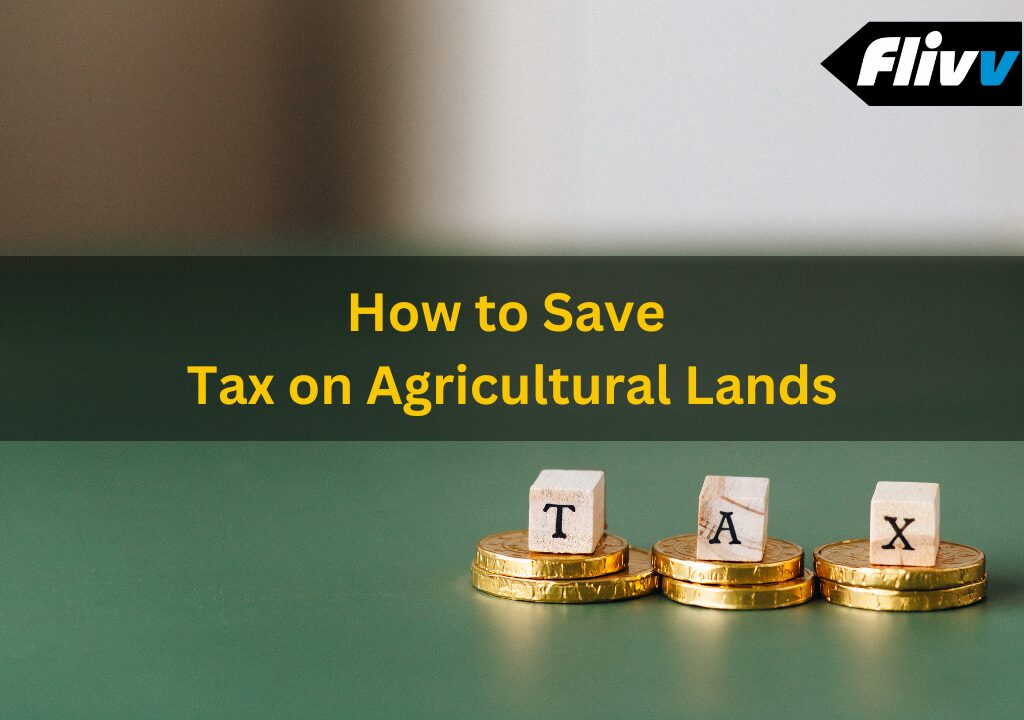Tax Exemption on Agricultural land plays a significant role for farmers and is crucial in the Indian economy. The entire country is dependent on agriculture for basic food requirements. The government has numerous schemes and policies for farmers, and one of the schemes is the exemption of tax on agricultural land.
But do you know what tax exemptions and tax calculations are? Let’s review all the essentials of tax exemption on agricultural land. Also, let’s understand who will benefit and how it will impact farmers.
What is Tax Exemption on Agricultural Land?
Section 54B is the income tax department that offers relief to individuals and Hindu Undivided Families(HUFs). This exemption is crucial and it allows farmers to reinvest in another agricultural land.
Agriculture is the primary source of livelihood for Indians. To retain more earnings tax exemptions are crucial to land owners and farmers. Have you ever thought that this exemption is for all lands or all kinds of agricultural lands? So, the answer to this is the income generated by any agricultural activities on agricultural land. However, there are some specific rules and regulations that every landowner should know.
Tax Exemption on Agricultural Land Eligibility –
Certain conditions are applied to qualify for tax exemptions. The requirements are:
Land Classification: Local agricultural authorities should classify the land and let them know not all lands are eligible even if they are used for farming.
Location: As per, the income tax guidelines, the land should be far from GHMC limits outside the urban boundaries.
- Usage: The land should be used for agricultural activity only like dairy farming, and growing crops. Simply labeling the land with agricultural won’t be enough.
Many people believe that buying land will only be enough to be exempted from tax, which is not true. Only specific activities will be eligible.
Importance of Tax Exemption on Agricultural Land –
Have you ever thought about why the government provides exemptions to farmers? The prime reason is to support the farming community. Agriculture is the backbone of the Indian economy and employs a significant portion of the population. Providing tax exemptions, to ensure food security, and reduce financial stress
In addition to large landowners small landowners will also benefit from tax exemptions. This will help the small landowners not to be burdened with additional taxes allowing them to invest back in farming.
So if you are a small landowner then you may be wondering. Can I save money with the tax exemption?
Types of Tax Exemptions on Agricultural Income –
Tax exemptions are done based on the land usage and type of income
Earning from crop production:
Income from traditional crops such as rice, Wheat, and vegetables.
Earning from Livestock:
Income from livestock like dairy falls under agricultural income, and adheres to the norms of Tax Exemptions.
Agri productions:
Businesses from agri-based products like seed production also come under Tax Exemptions.
How can you claim the Tax Exemption on Farm Land –
Understanding of tax laws and proper documentation is required for claiming agricultural land tax.
Classifying the Land:
Ensuring land is classified by the local authorities.
Submitting Forms:
If you’re filing for taxes then you need to submit all the relevant documents.
Maintaining records:
Keeping all records of income, farming, and expenses.
If you are thinking that you really need to do paperwork? Then yes you have to avoid future complications.
Benefits and Limitations of Agricultural Land Tax Relief:
The benefits and limitations of farming land tax go beyond the immediate savings. Here are a few benefits of the tax exemption
- Supporting rural economy
- Income for farmers
- Encouraging agricultural investments
Where there are benefits there are a few limitations. For example, if you are renting out farming land and a person using it for another purpose then this won’t be eligible for the tax exemption. Also if you own the farming land and you have a tree plantation like mango or coconut, which has specific rules on whether income from those corps is tax exempted is fully. However, the tax rules change and might come into effect.
Conclusion:
The Agricultural tax exemption for landowners is a great advantage as it reduces the tax burden. If you are a new agricultural land owner thinking that you will benefit from tax exemption. You can fully utilize the tax exemption if you plan carefully and understand section 54B. To know more about the Tax benefits on agricultural lands Visit us at Flivv Developers.





